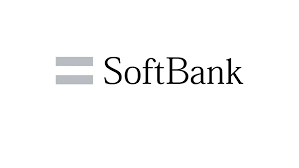The rise of generative AI has fueled the demand for specialized AI chips designed to train and run these advanced models. Major industry players, from venture capitalists to startups, are eager to capitalize on this trend. Notable efforts include SoftBank’s Masayoshi Son reportedly aiming to raise $100 billion for a chip initiative to rival Nvidia, and OpenAI exploring the creation of its own AI chip-making venture.
Amid this competitive landscape, AI chip startup Axelera has garnered attention, particularly by focusing on a niche market: chips designed for edge devices. Co-founder and CEO Fabrizio Del Maffeo emphasized the transformative potential of AI across various sectors, highlighting the need for high-performance, efficient, and cost-effective solutions.
Company Background and Vision
Headquartered in the Netherlands, Axelera employs around 180 people across offices in Belgium, Switzerland, Italy, and the U.K. The company designs AI chips and systems for applications in security, retail, automotive, and robotics, catering to partners in the B2B edge computing and IoT markets.
Axelera emerged from a collaborative effort led by Del Maffeo and teams from Imec, a Belgian technology lab, and Zurich-based IBM researchers. The company was initially incubated within Bitfury Group, a blockchain company specializing in Bitcoin hardware. Axelera’s AI hardware stack is characterized by its use of the RISC-V instruction set architecture (ISA) and in-memory computing. Unlike traditional ISAs licensed from large chipmakers like Arm or Intel, RISC-V is an open, royalty-free alternative. In-memory computing, on the other hand, runs calculations within the system’s RAM, reducing latency caused by storage devices.
Axelera is not alone in exploring RISC-V and in-memory computing for AI chips. Competitors like NeuroBlade, MemVerge, GigaSpaces, Hazelcast, H20.ai, and Tenstorrent also offer innovative AI hardware solutions. However, Axelera aims to differentiate itself by providing both the chip hardware and the software necessary to manage and deploy AI models effectively.
Funding and Expansion Plans
On Thursday, Axelera announced a $68 million Series B funding round, bringing its total raised to $120 million. The round saw contributions from the European Innovation Council Fund, Innovation Industries Strategic Partnership Fund, Invest-NL, and Samsung Catalyst Fund. Del Maffeo stated that the new funds would support Axelera’s expansion into new markets ahead of the full production of its flagship Metis AI platform in the second half of 2024. Additionally, Axelera plans to venture into the data center chip market, with research and development efforts targeting high-performance computing applications.
Axelera plans to deliver the Metis platform, which entered full production in Q2, in volume by Q3. The company is developing a new generation of products for computer vision, large language models, and multimodal models, with plans to launch these products in full production by 2025. The challenge lies in scaling the production of its AI chips and competing with numerous other players in the market. Despite the fierce competition, the potential rewards are significant. The AI chip market is projected to generate up to $67 billion in revenue by 2027, according to Statista and Market.us. While Axelera may not dethrone established giants like Nvidia, capturing even a small portion of this market would be a notable achievement.
Axelera’s recent funding round underscores its commitment to democratizing access to AI from the edge to the cloud. With a diverse product line and a growing base of enterprise customers, Axelera aims to address industry challenges in AI inference and support evolving AI processing needs. As the AI chip market continues to heat up, Axelera’s strategic focus and innovative technology position it as a formidable contender in this rapidly evolving field.
See also: SoftBank And Tempus Form AI Healthcare Joint Venture In Japan


















